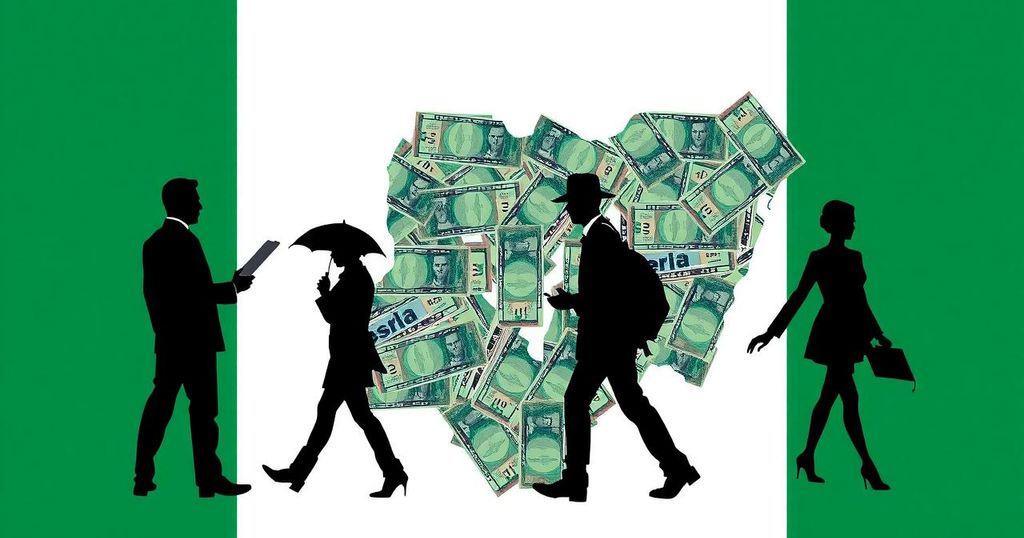Nigerian Naira Depreciates Amid Central Bank Rate Hike
The Nigerian Naira has weakened against the US dollar after the Central Bank of Nigeria raised interest rates for the fifth time this year. The official rate reached NGN 1,658 per dollar, while the parallel market saw a low of NGN 1,675. This decrease occurred alongside a more than 60% increase in foreign exchange turnover, from $100.21 million to $166.36 million.
The Nigerian currency, the Naira, has experienced a significant depreciation against the United States dollar following the Central Bank of Nigeria’s (CBN) recent decision to increase interest rates for the fifth time this year. After the CBN raised the benchmark lending rate by 50 basis points, the Naira plummeted to NGN 1,658 per dollar within the official foreign exchange market. Meanwhile, the naira reached a concerning low of NGN 1,675 per dollar on the parallel market. This decline in the Naira’s value transpired despite a notable increase in the 24-hour foreign exchange turnover, which surged over 60% from $100.21 million to $166.36 million.
This article addresses the economic conditions in Nigeria precipitating the decline of the Naira against the dollar. The Central Bank of Nigeria has been actively adjusting interest rates as a monetary policy tool to combat inflation and stabilize the currency. However, the recent rate hikes have not exerted the expected stabilizing effect on the Naira, which has raised concerns about the efficacy of these measures amidst significant market volatility. The dynamics of both the official and parallel currency markets in Nigeria are crucial to understanding the complexities of the country’s economic landscape.
In conclusion, the recent depreciation of the Nigerian Naira following the Central Bank’s interest rate hike reflects ongoing economic challenges within Nigeria. Despite increased liquidity in the foreign exchange market, the Naira’s value continues to decline, exacerbating concerns regarding the nation’s financial stability and the effectiveness of the CBN’s monetary policy interventions.
Original Source: news.bitcoin.com








Post Comment